On December 15, the Solid-State Hydrogen Storage Technology Forum 2023, jointly organized by the International Hydrogen Fuel Cell Association (IHFCA) and the China Society of Automotive Engineers (China SAE), was held in Beijing. The forum was co-hosted by the Technology Innovation and Incubation Committee of IHFCA (Preparatory), with tremendous support from Anglo American. The forum featured 20 representatives, including industry experts and scholars in the field of soild-state hydrogen storage, as well as corporate executives from various companies. They delivered speeches and participated in panel discussions to share the latest frontiers, application practices and case studies in solid-state hydrogen storage technology. The forum facilitated exchanges and discussions through a combination of online and offline methods, attracting over 50,000 viewers.The first half of the technical speeches was moderated by Xueya Lei, Deputy Director of Industry and Standards Research Department of IHFCA. What followed were an opening speech by Tony Chen, Vice Chairman of IHFCA and two keynote speeches respectfully from Lijun Jiang, Chief Expert of China GRINM Group Corporation Limited, Director of GRIMAT Engineering Institute Co., Ltd. and Xiang Li, Director of Gas Cylinder Department, China Special Equipment Testing and Research Institute (CSETRI).
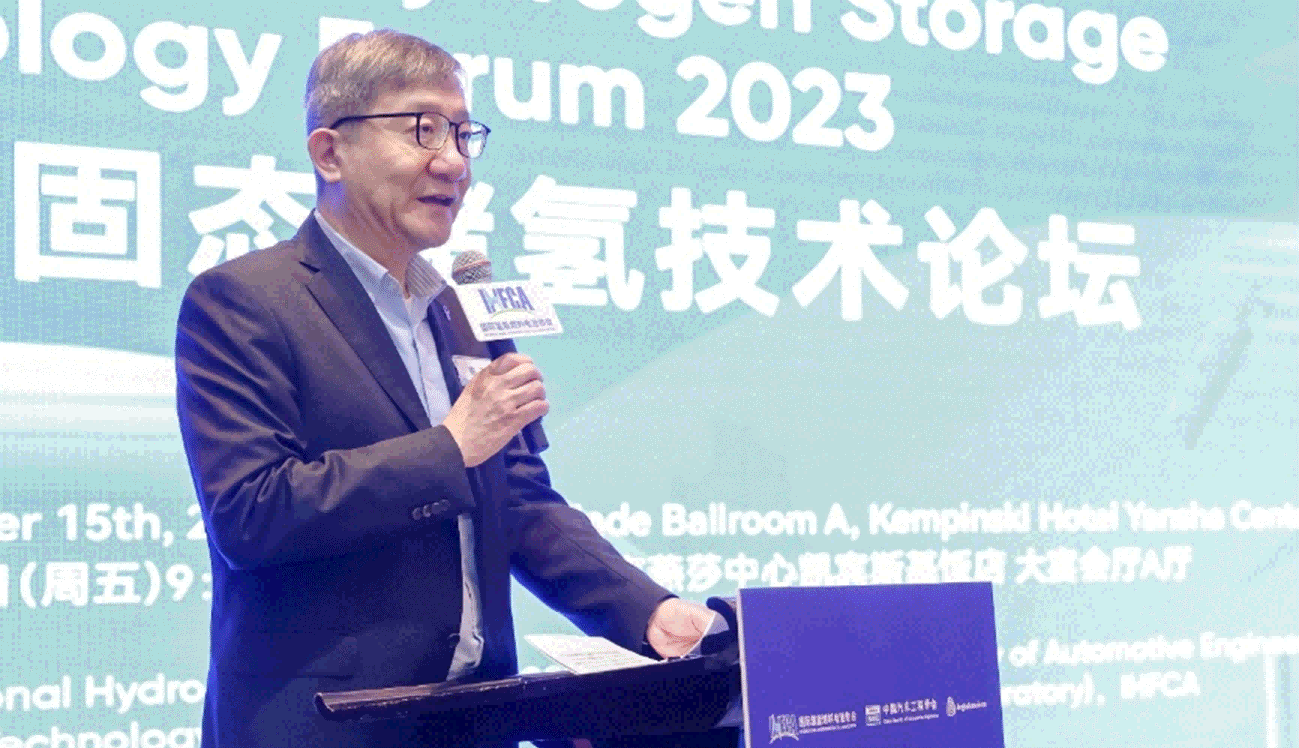
Tony Chen, Vice Chairman of IHFCA
Tony Chen emphasized the global shift to elevate hydrogen energy development to a strategic level, supporting national energy, climate, economy, science, technology, and security. He noted the advantages of solid-state hydrogen storage, such as safety, storage density, and convenient transportation, over traditional methods. However, he also acknowledged the challenges it faces in materials, cost, technology, application scenarios, standards, and regulation. The forum aimed to address these issues to foster innovation and accelerate the hydrogen energy industry's growth.
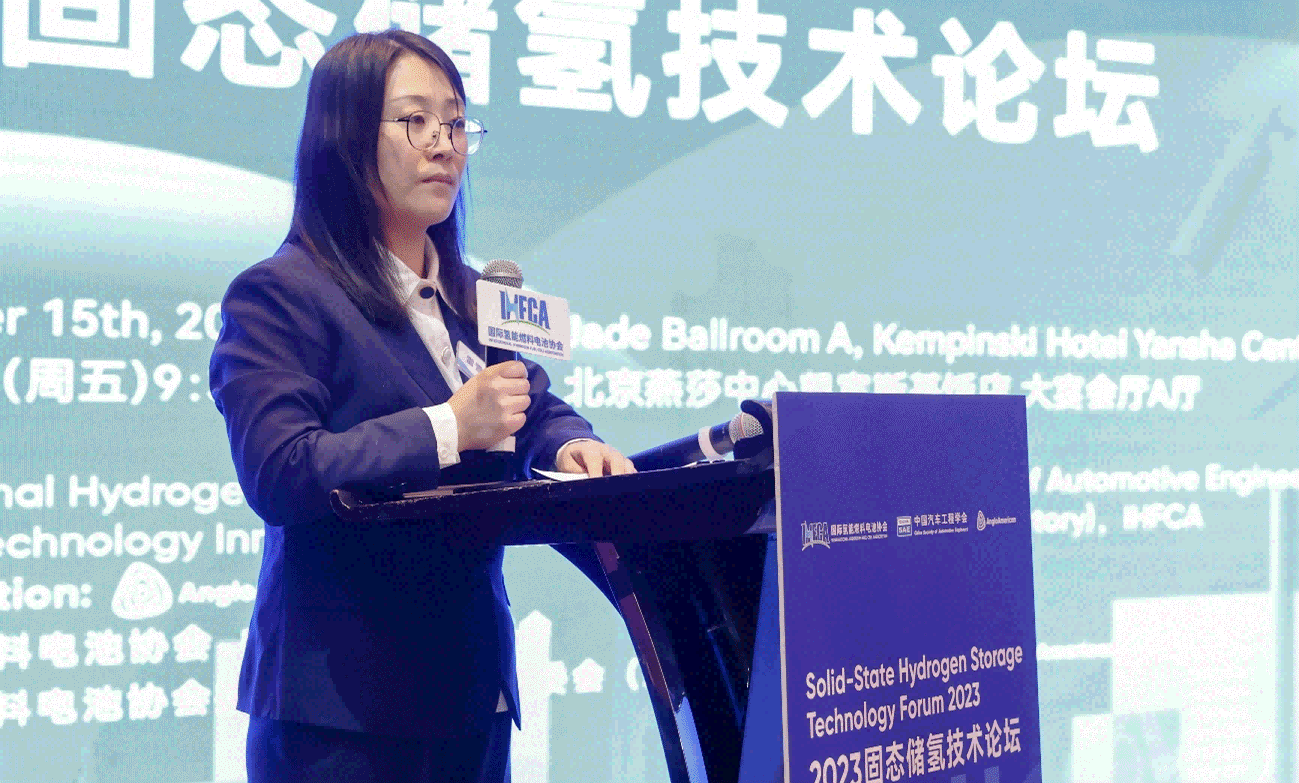
Moderator: Xueya Lei, Deputy Director of Industry and Standards Research Department of IHFCA
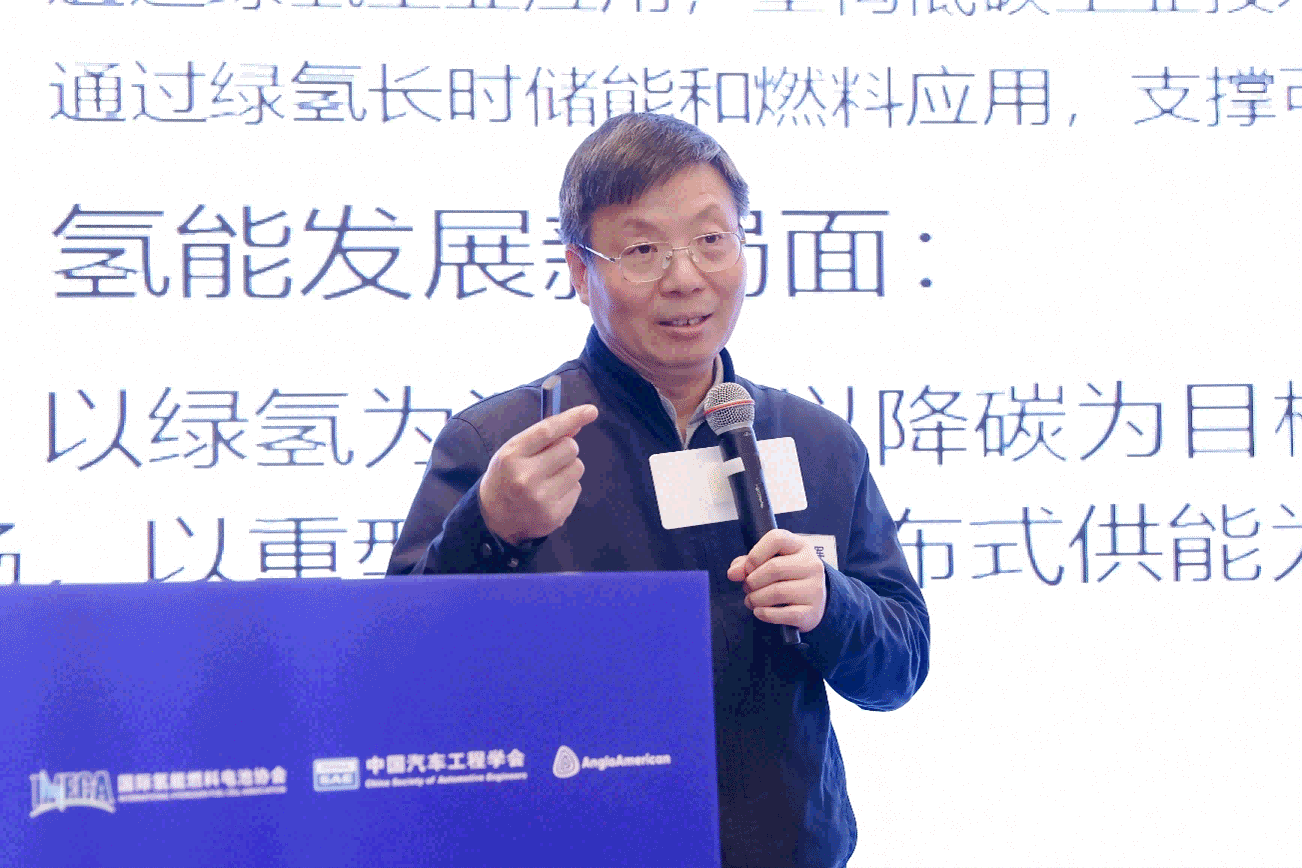
Lijun Jiang, Chief Expert of China GRINM Group Corporation Limited, Director of GRIMAT Engineering Institute Co., Ltd.
Lijun Jiang addressed the advancements and challenges in solid-state hydrogen storage, noting issues with cost, safety, functionality, and lagging standards. He mentioned that GRIMAT Group has developed titanium, rare-earth, and magnesium-based hydrogen storage technologies, applicable in various scenarios like distributed energy supply, emergency power supply, large-scale and vehicle hydrogen storage, and hydrogen refueling stations.
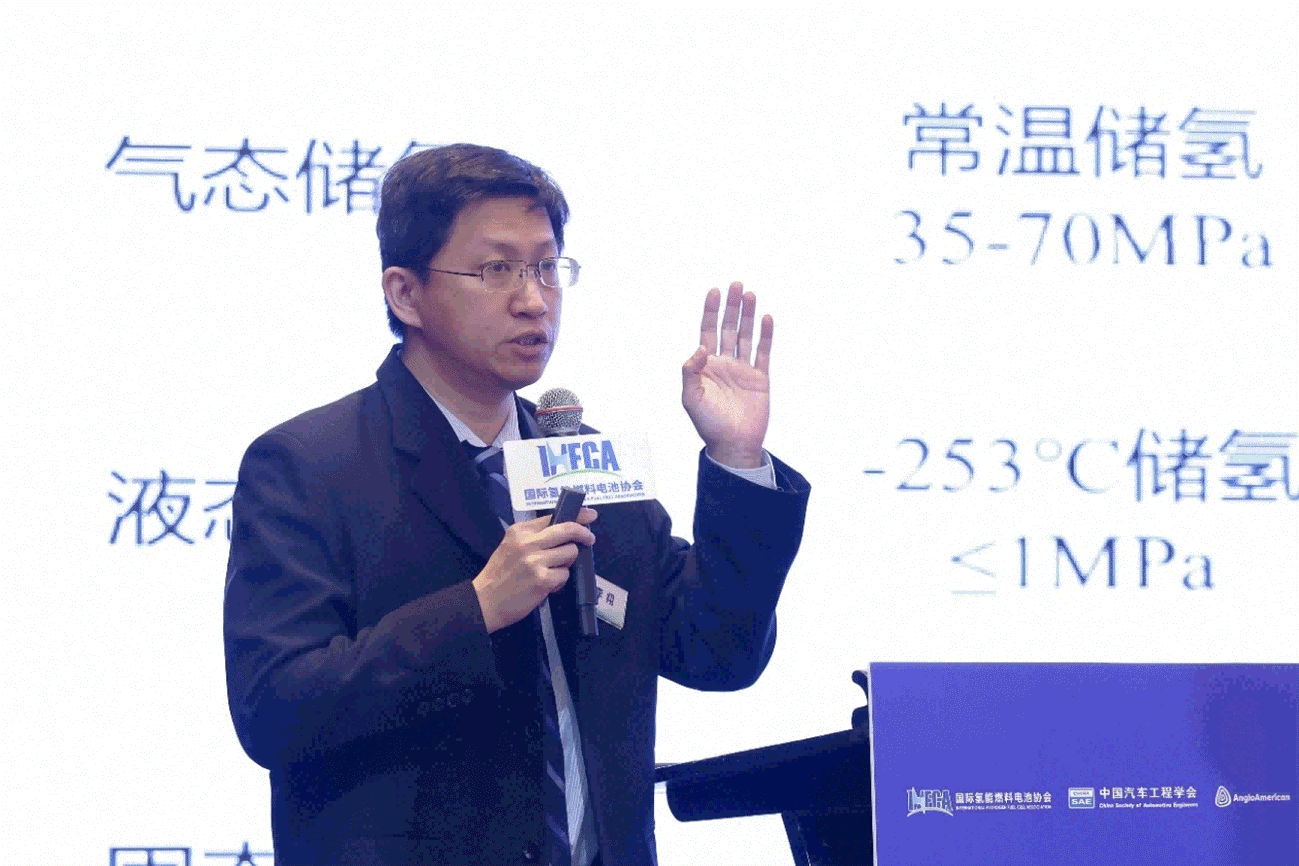
Xiang Li, Director of Gas Cylinder Department, China Special Equipment Testing and Research Institute (CSETRI)
Xiang Li, as a special equipment testing expert, elaborated on current situation of the testing industry given the status quo of hydrogen storage and transportation equipment testing and experiment. In particular, he mentioned the new method of "three new" evaluation and introduced the basic procedure of it, so as to further accelerate the development of key hydrogen storage and transportation equipment.
The second half of the technical speeches was hosted by Bo Zhang, Director of Hydrogen and Fuel Cell Vehicle Research Center, China SAE, with keynote speeches by Hujun Cao, Researcher of Dalian Institute of Chemical Physics, Jianxin Zou, Professor of School of Materials Science and Engineering, Shanghai Jiaotong University, Bao'an Wang, Deputy General Manager of Zhongke Xuanda New Energy Technology Co., Ltd., and Dr. Hanyang Kong from Sichuan University.
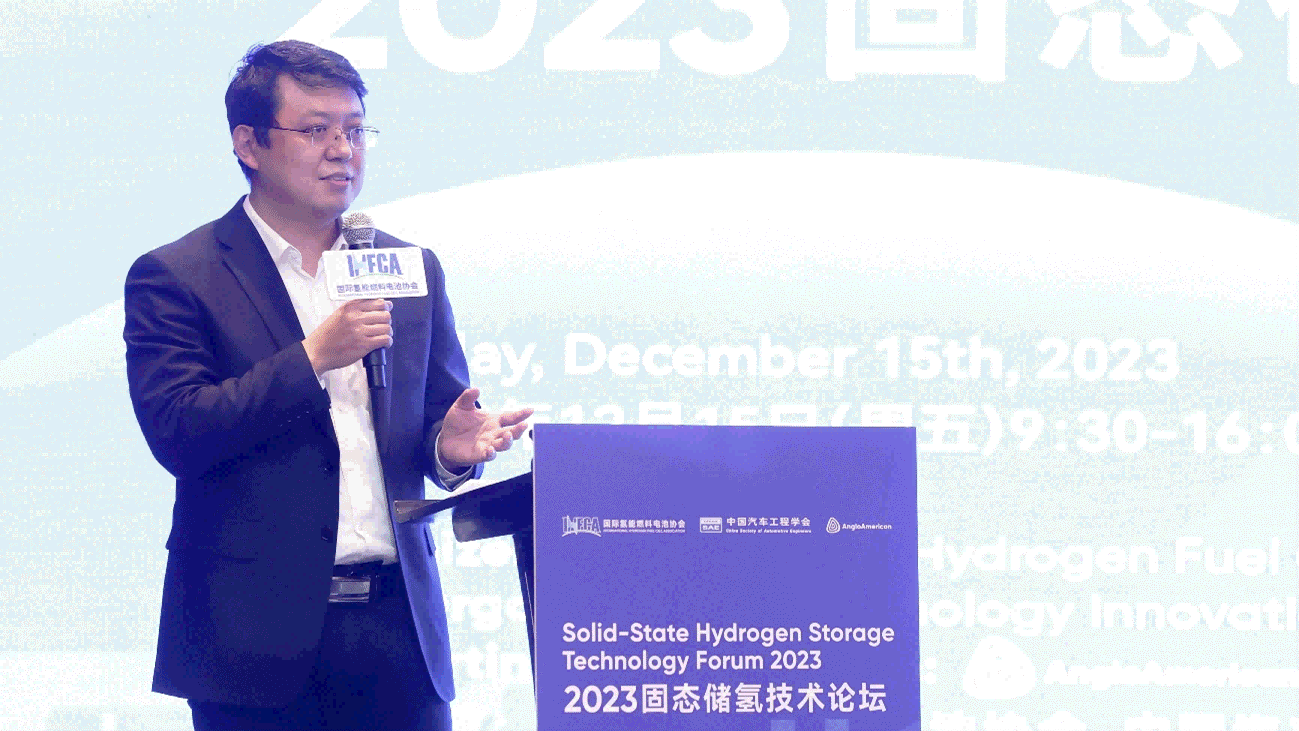
Moderator: Bo Zhang, Director of Hydrogen and Fuel Cell Vehicle Research Center, China SAE
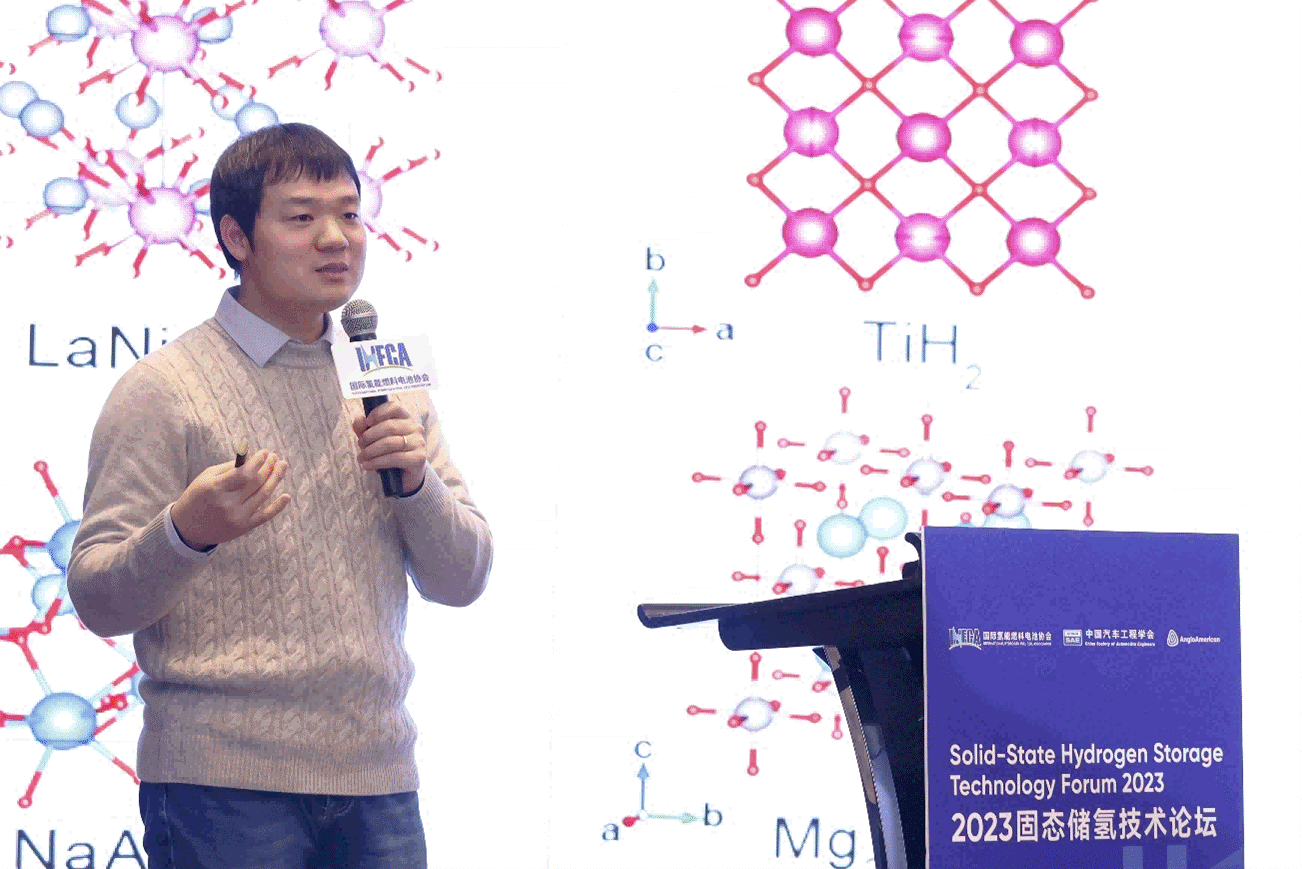
Hujun Cao, Researcher of Dalian Institute of Chemical Physics
Hujun Cao introduced the latest updates made by the Dalian Institute of Chemical Physics in the synthesis and performance optimization of lightweight hydrogen storage materials. He put much emphasis on LiMgNH system, pointing out that the system was noted for the high hydrogen storage capacity, mild hydrogen absorption and release temperatures, and adjustable thermodynamics and kinetics, and had the potential to be applied in specific scenarios.
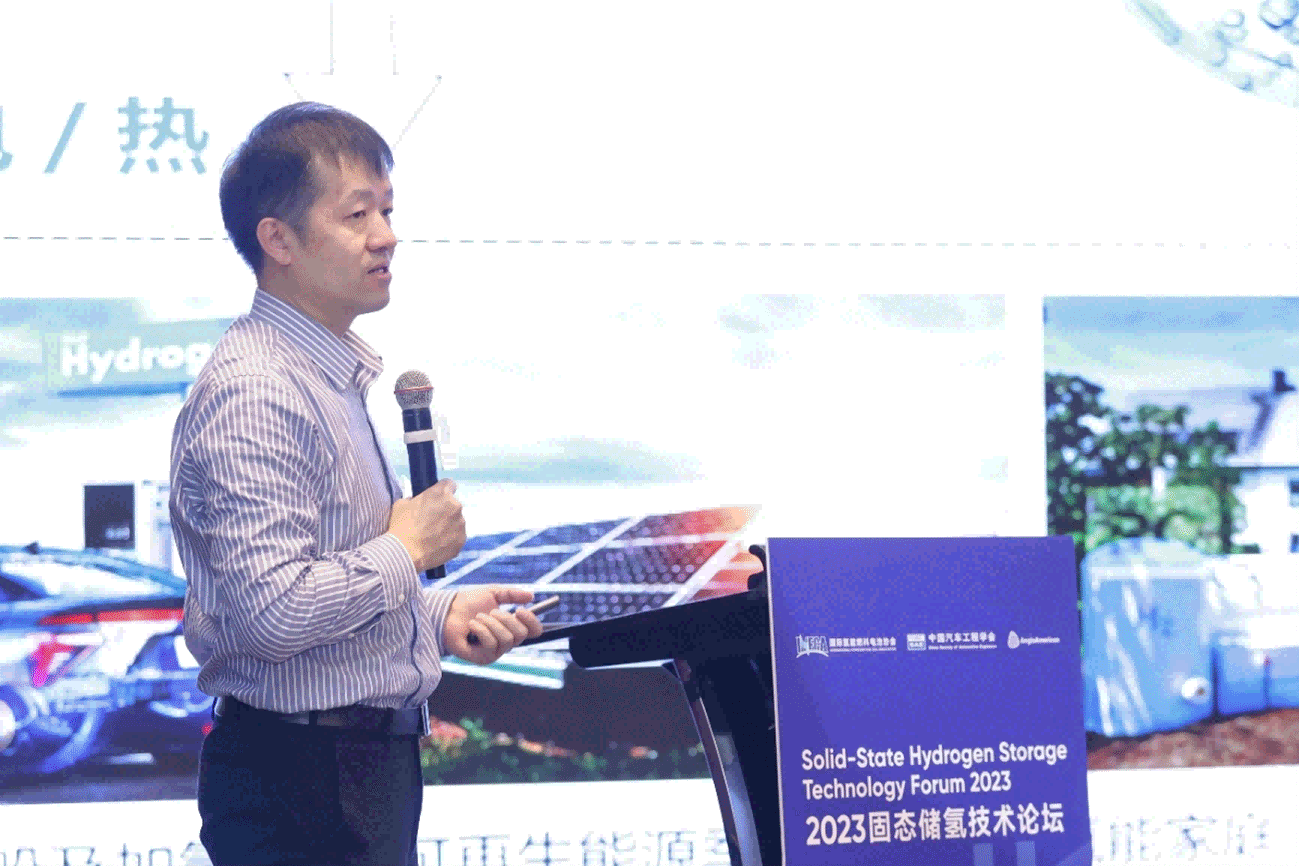
Jianxin Zou, Professor of School of Materials Science and Engineering, Shanghai Jiaotong University
Jianxin Zou discussed China's latest advancements and practical applications in high-capacity magnesium-based solid-state hydrogen storage technology. He highlighted the benefits of magnesium-based materials, including low cost, high capacity, and high purity of hydrogen release. These materials benefit from China's abundant magnesium mineral resources, ensuring low material costs and no resource limitations. Furthermore, magnesium-based hydrogen storage technology offers advantages like simple reactions, no by-products, and good controllability. Currently, significant progress has been made in mass-producing high-purity magnesium hydride and developing large-scale magnesium-based solid-state hydrogen storage and transport solutions.
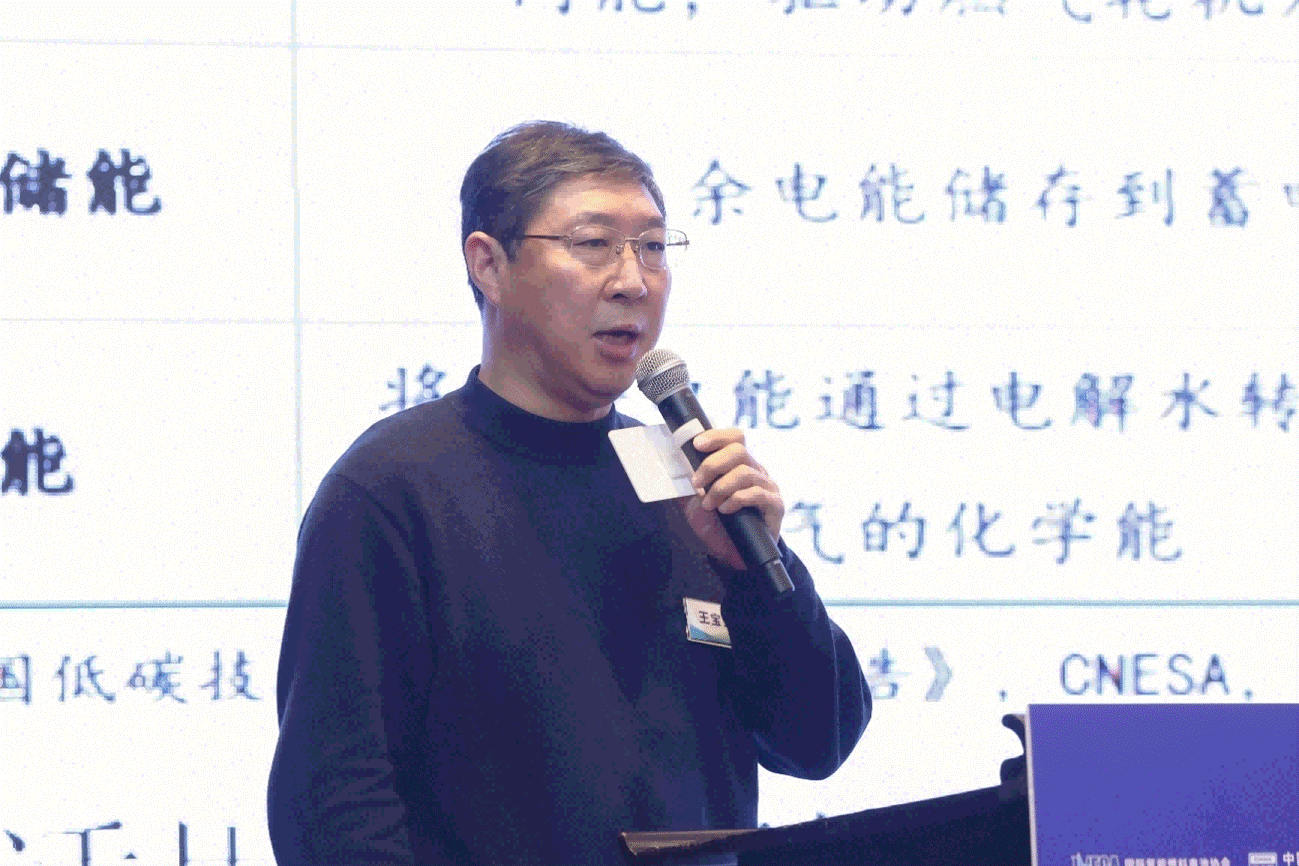
Bao'an Wang, Deputy General Manager of Zhongke Xuanda New Energy Technology Co., Ltd.
Bao'an Wang, an enterprise representative, introduced solid-state hydrogen storage technology and its application in hydrogen energy storage scenarios as well as the opportunities and challenges. During his speech, Bao'an Wang emphasized the effectiveness of solid-state hydrogen storage for large-scale applications, especially for energy derived from renewable sources. This method enhanced efficiency by reducing the need for extensive equipment, thus streamlining the storage process and ensuring a reliable hydrogen supply.
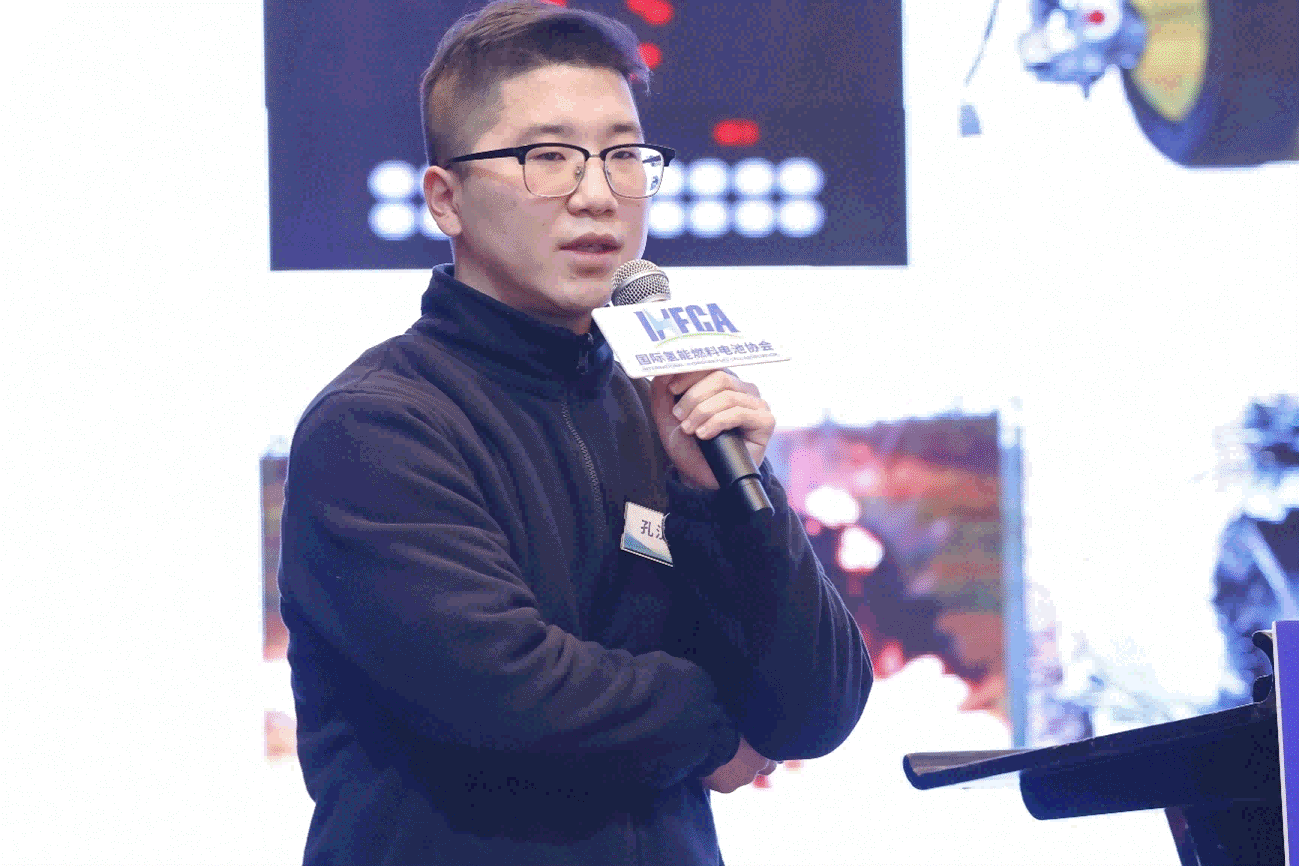
Dr. Hanyang Kong from Sichuan University
Dr. Hanyang Kong shared Sichuan University's latest research progress in V-system alloys solid-state hydrogen storage. The team had developed a distinctive and cost-effective V-Ti-Cr-Fe alloy system, which had the advantages of high volumetric hydrogen storage density, low working pressure, and great safety performance. The system was suitable for stationary energy storage in various fields such as hydrogen energy vehicles and electric power. The production line of hydrogen storage alloy with an annual output of 100 tons had been constructed.
The application session was hosted by Xiaoshuang Liu, Principal Market Development PGM China, Anglo American. What followed were keynote speeches respectfully by Huimin Lu, Chief Technology Officer of Asia Pacific Fuel Cell Technologies and Chief Scientist of Yangtze Delta Region Institute of Tsinghua University, Emma Lu, General Manager of Shanghai Chongya Co., Ltd., Dr. Kilku Kang, Technical Director of Hydrolux, Chao Wang, Founder and CEO of Kaiyun Motors, Jing Zhang, Strategy Director of Guangdong Horizon New Energy Technologies Co., Ltd. and Shengping Liao, Engineer of XTC Hydrogen Technology Co., Ltd.
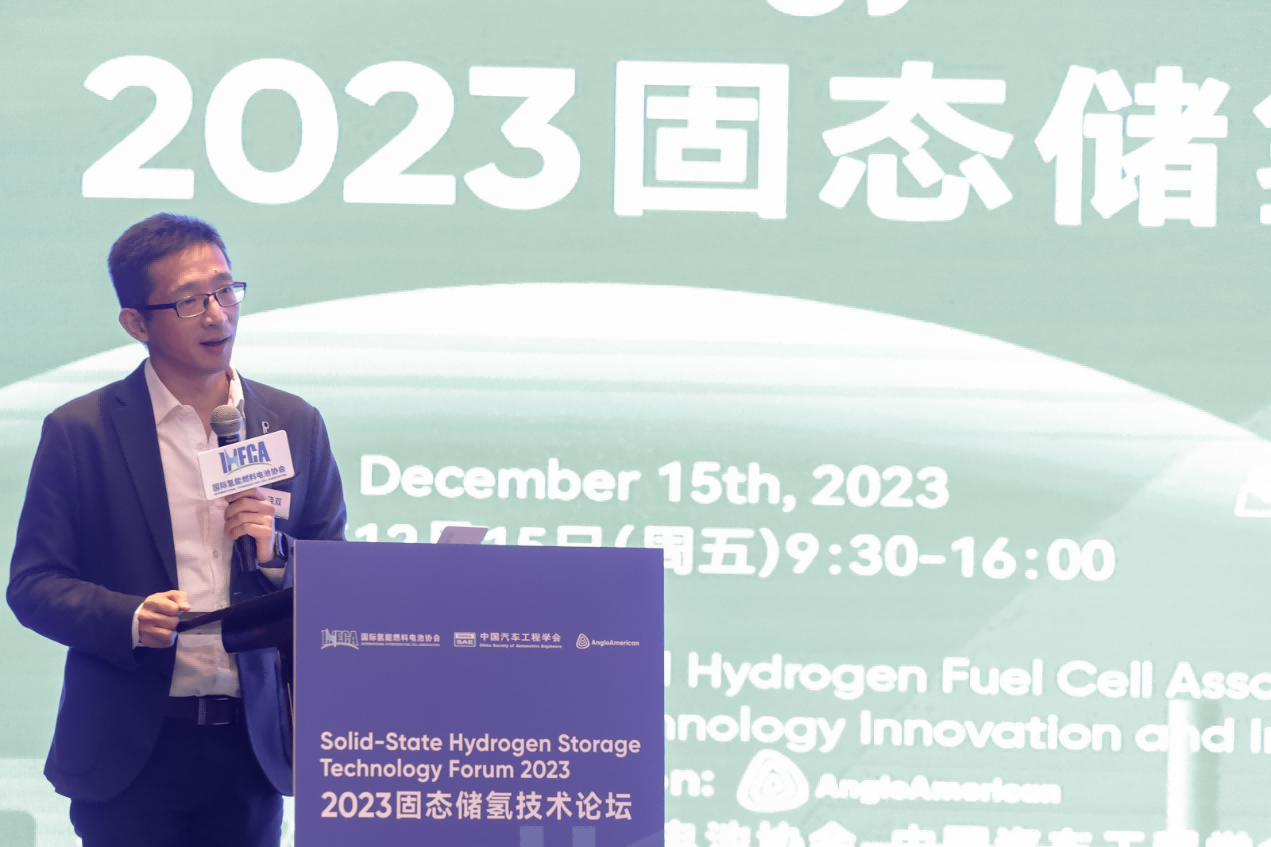
Moderator: Xiaoshuang Liu, Principal Market Development PGM China, Anglo American
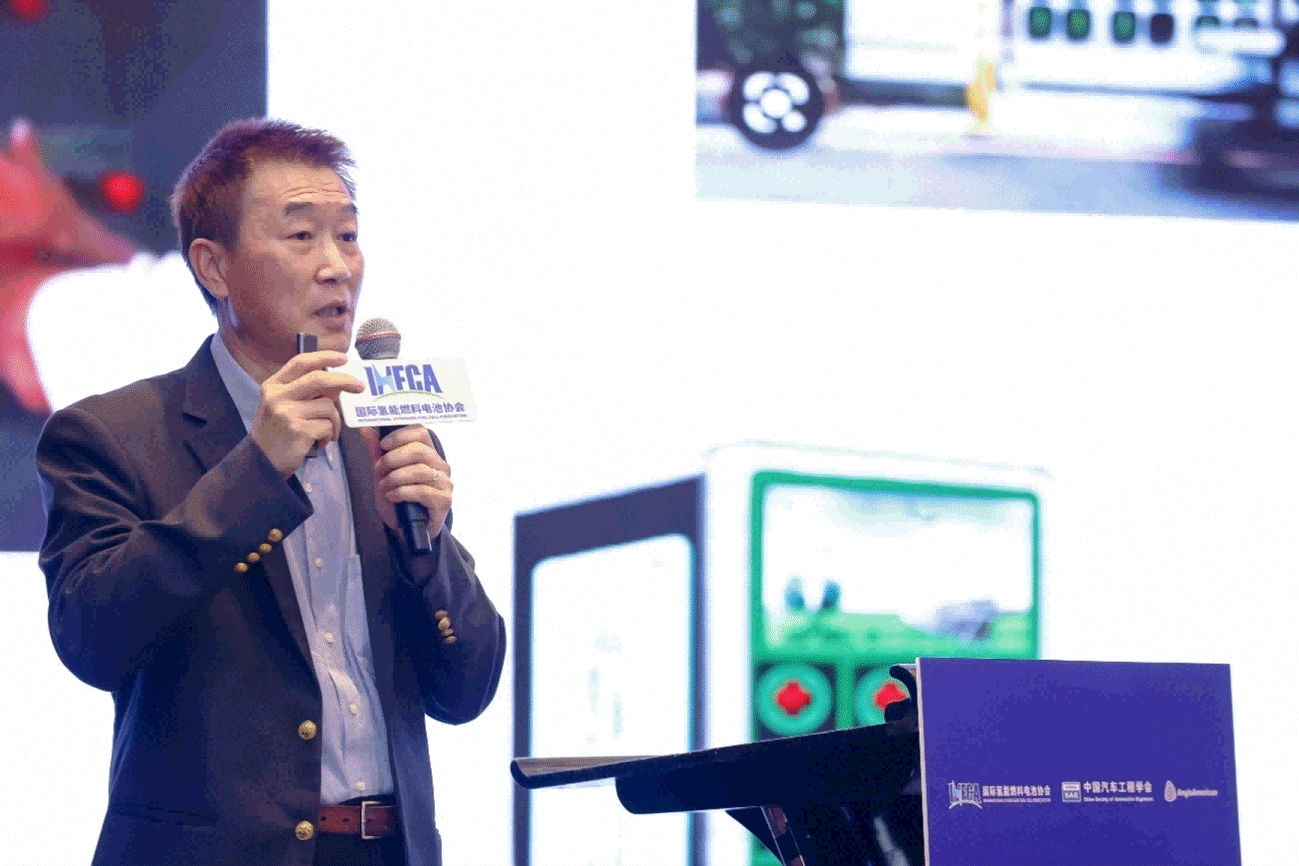
Huimin Lu, Chief Technology Officer of Asia Pacific Fuel Cell Technologies and Chief Scientist of Yangtze Delta Region Institute of Tsinghua University
Huimin Lu gave a speech about the commercial operation of nano-magnesium-based solid hydrogen storage, sharing projects of two-wheeler and forklift powered by solid-state hydrogen storage and exchange device. He deemed that technical breakthroughs must keep pace with the market. And he believed that nano-magnesium-based hydrogen storage will have great potential in unmanned vehicles in the future.
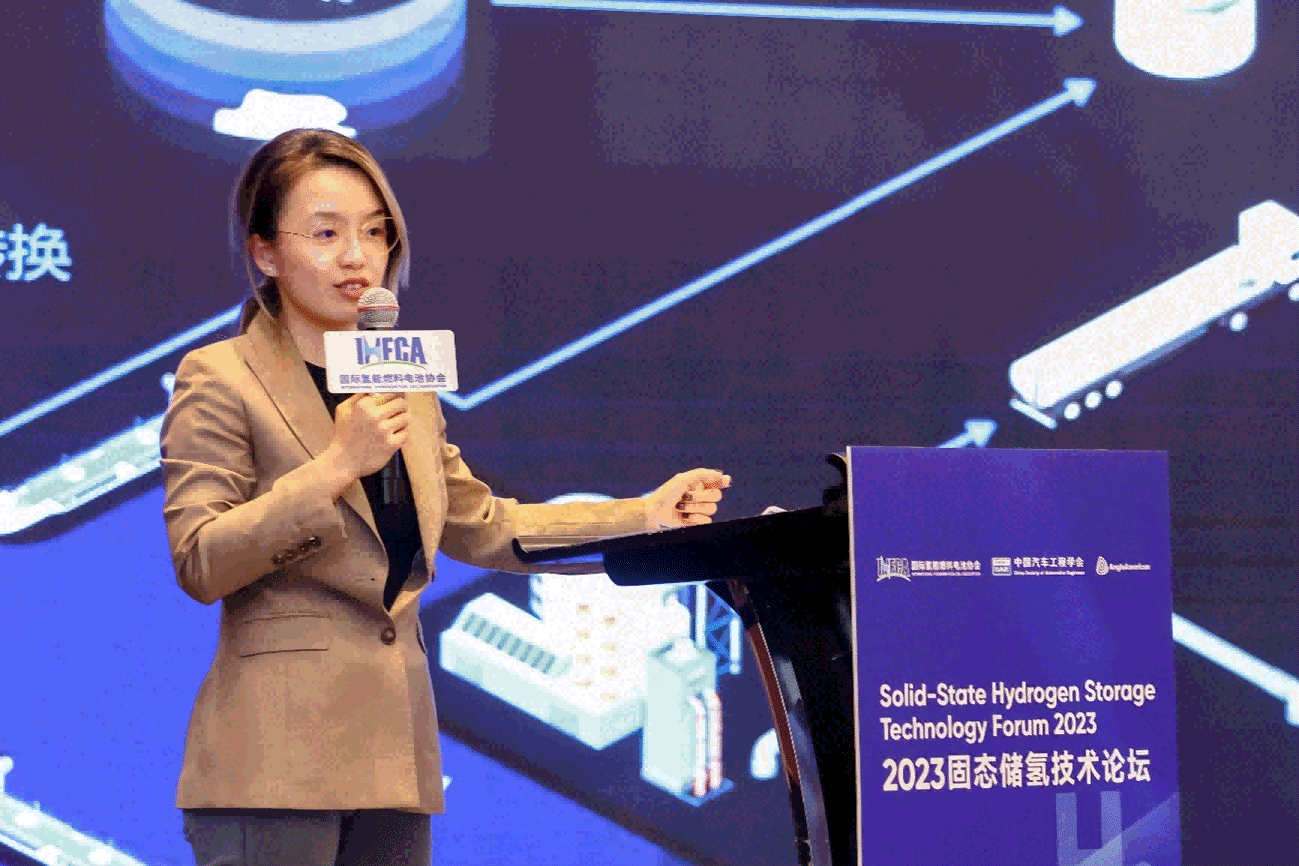
Emma Lu, General Manager of Shanghai Chongya Co., Ltd.
Emma Lu shared the diversified application scenarios of solid-state hydrogen storage technology. The essence of hydrogen economy is to turn waste into treasure, which turns hydrogen storage technology into a powerful tool to empower diversified hydrogen application scenarios. Based on fuel cell technology and solid-state hydrogen storage technology, Chongya had established the "zero-carbon microgrid", which enables hydrogen energy to deliver value in diversified application scenarios, she said.
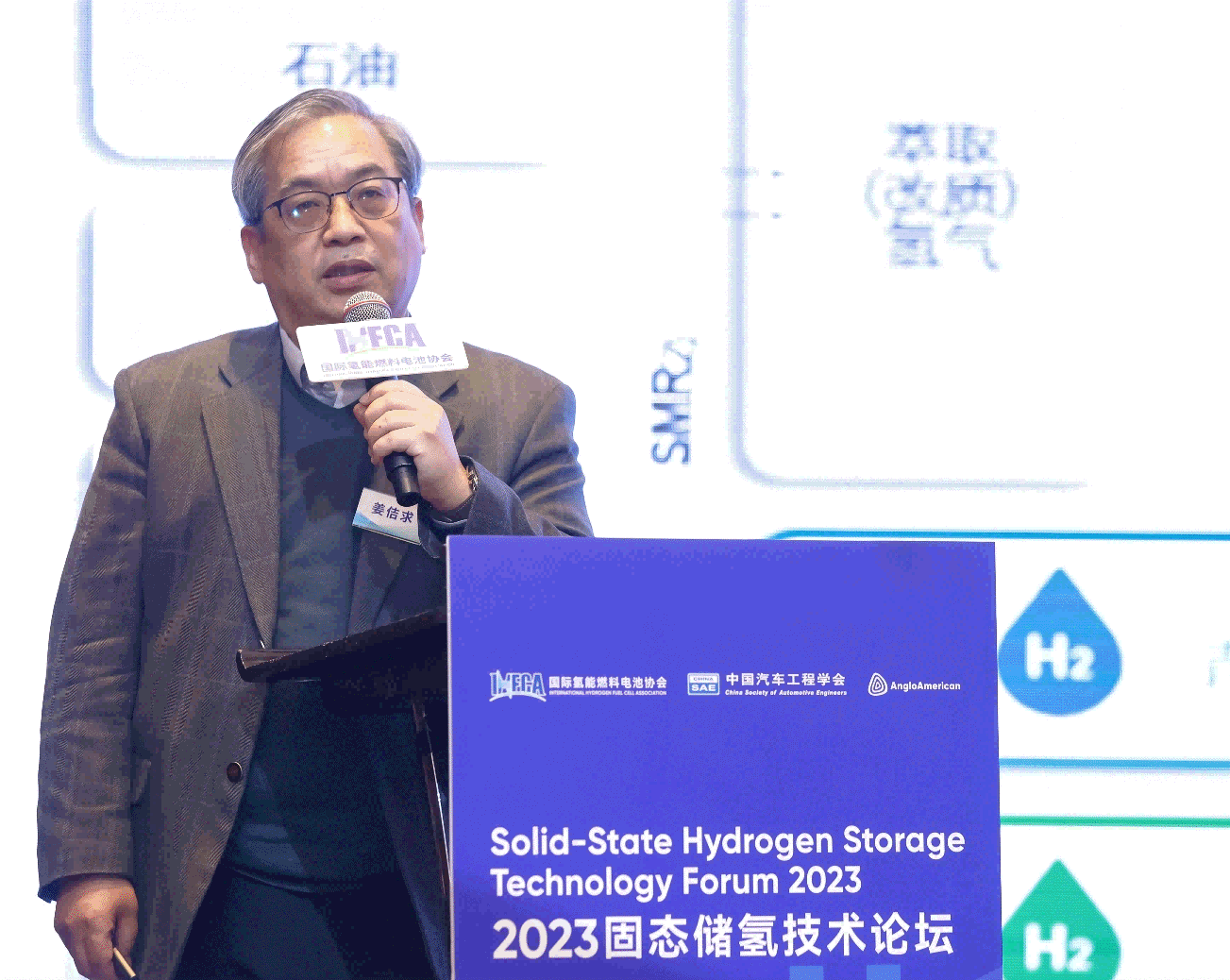
Dr. Kilku KANG, Legal Representative of Hydrolux
Dr. Kilku KANG, Technical Director of Hydrolux, a solid-state hydrogen storage company in Korea, shared that Hydrolux focused on the research and development of solid-state hydrogen storage alloys that could be stored and transported at ambient temperatures and below 1 MPa (10 bar). In Korea, gas exceeding 1Mpa is considered as to be in the high pressure range, and a 1MPa low pressure solid-state hydrogen storage device is more suitable for a wider range of application scenarios, such as hydrogen motorcycles, specialized fuel cell supply equipment for emergency power supply, and hydrogen storage and transportation.
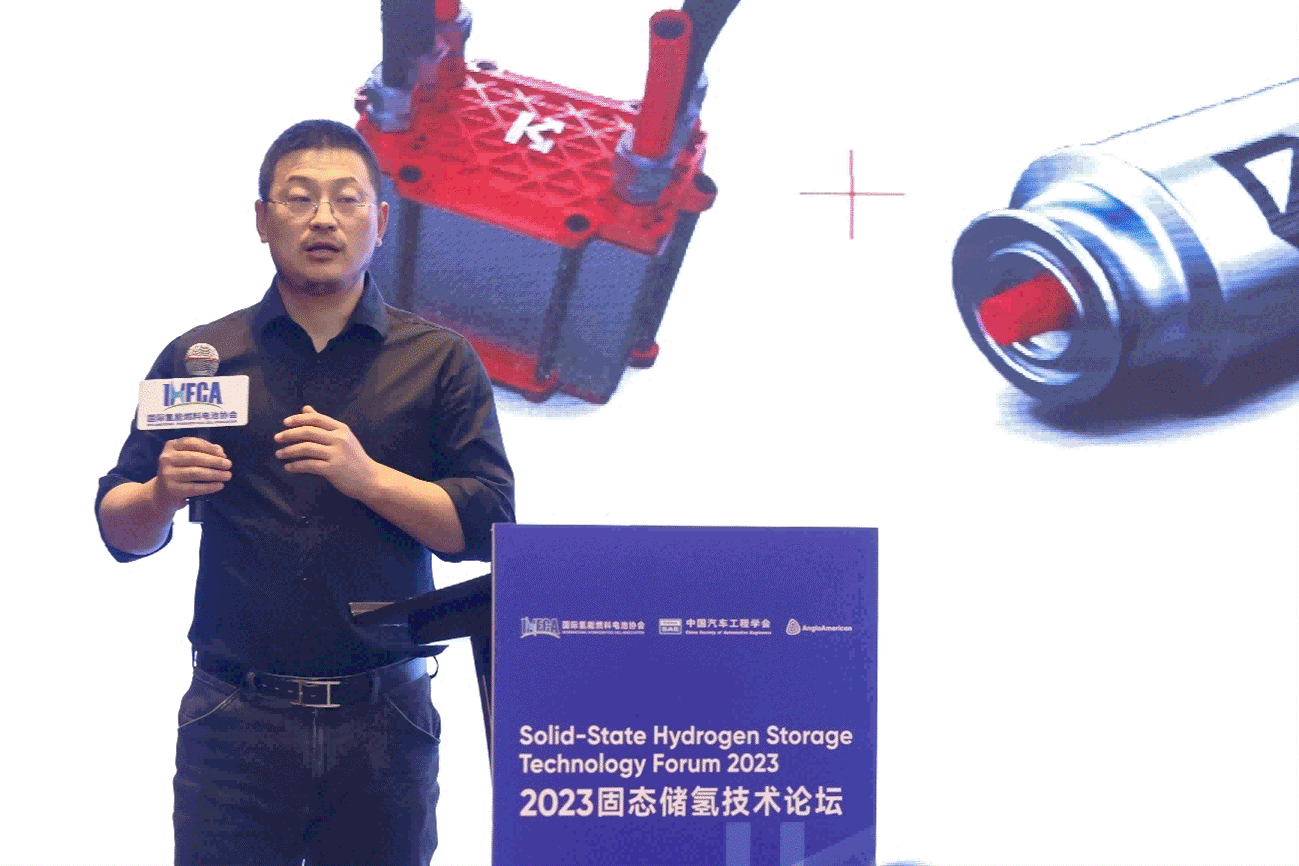
Chao Wang, Founder and CEO of Kaiyun Motors
Chao Wang stated that the travel and transportation industry are crucial for achieving the "dual-carbon goal", predicting that hydrogen costs will decrease and its infrastructure will become more widespread.. At present, it seems that the express industry, "last-mile" section of hydrogen transportation is the most suitable scenario for solid hydrogen storage. If millions of express vehicles can be driven by hydrogen, which would be the largest hydrogen application case, hydrogen energy vehicles will share a bright future.
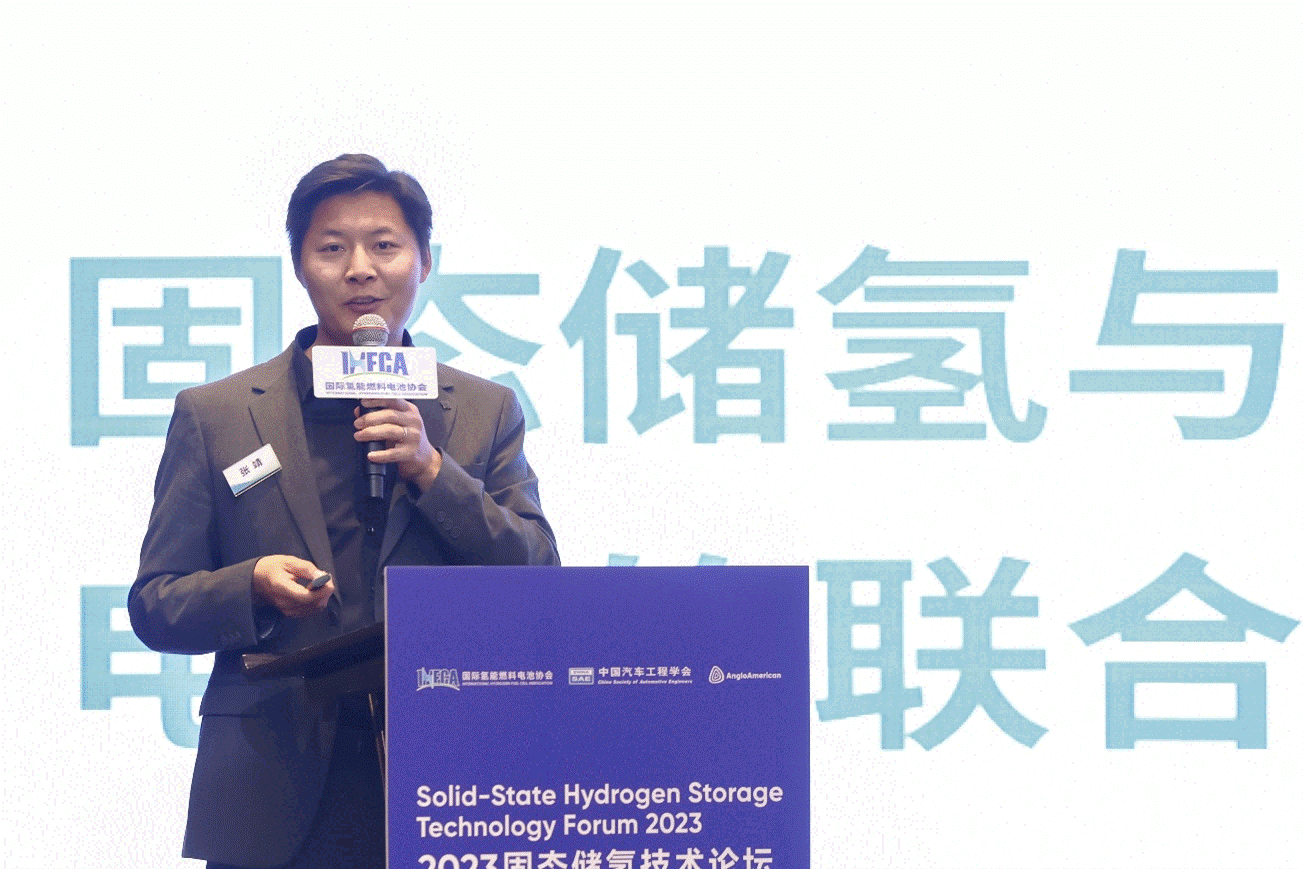
Jing Zhang, Strategy Director of Guangdong Horizon New Energy Technologies Co., Ltd.
Jing Zhang shared the practice of joint application of solid-state hydrogen storage and small-scale fuel cells. The solid-state hydrogen storage is particularly suitable for long-cycle, small-scale hydrogen storage that does not require high weight and cost but is volume-sensitive and requires high safety. The technology fits Mini watt products better than the high-pressure method.
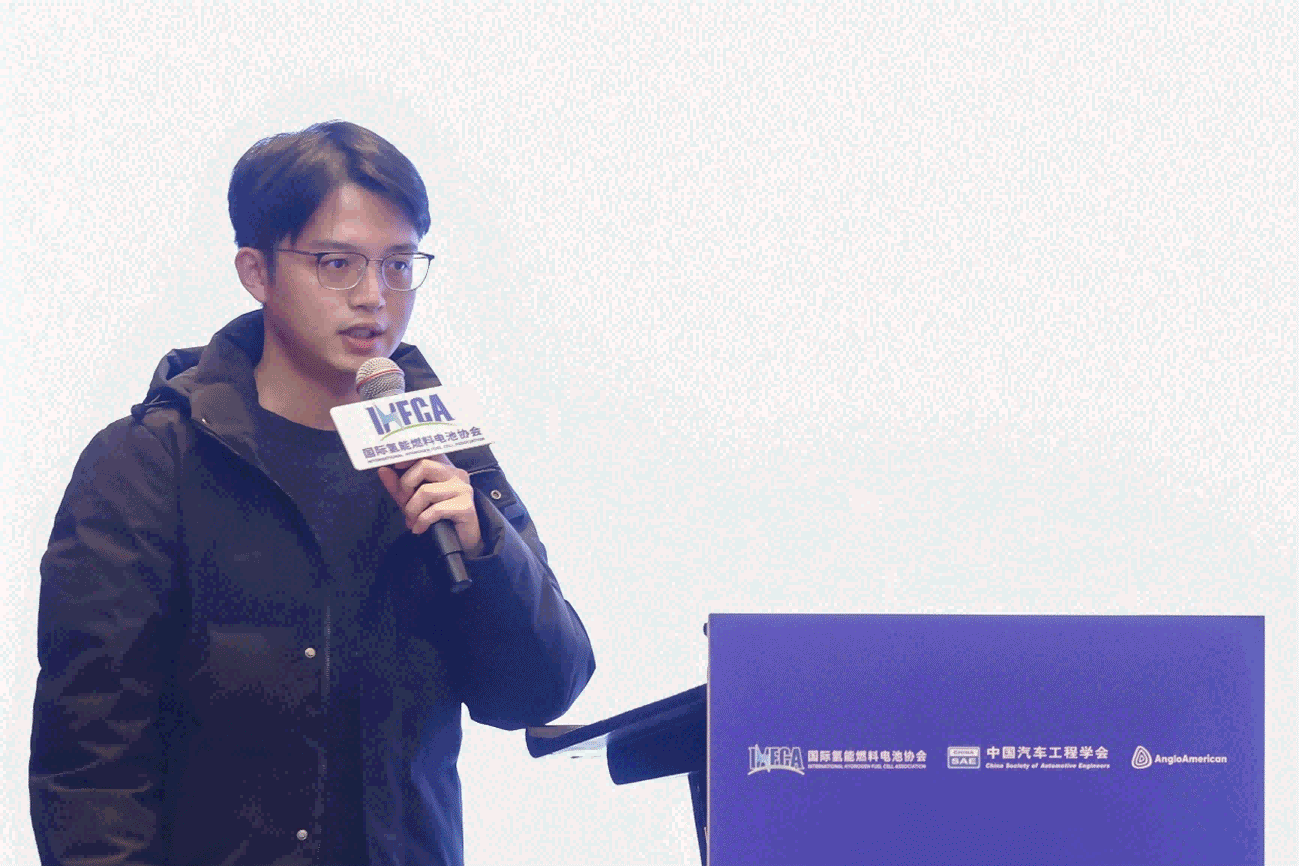
Shengping Liao, Engineer of XTC Hydrogen Technology Co., Ltd.
Shengping Liao stated that hydrogen storage is a key constraint to the development of hydrogen energy, while the solid-state hydrogen storage is one of most promising hydrogen storage technologies. Hydrogen storage alloys has showed mature commercial use in the field of nickel-metal hydride batteries, mainly using LaNi5-type hydrogen storage alloy (AB5-type) and LaMgNi hydrogen storage alloy (A2B7-type).
The panel discussion, hosted by Tony Chen, vice chairman of IHFCA, was targeted on opportunities and challenges of solid-state hydrogen storage technology in the promotion of hydrogen energy. Shumao Wang, Technical Director of GRIMAT Engineering Institute Co., Ltd., Xiang Li, Hujun Cao, Huimin Lu, Dr. Kilku Kang and Jing Zhang shared their insights during the panel.
The Solid-State Hydrogen Storage Technology Forum 2023, highly recognized by the participants, is leading the industry to recognize the potential of solid-state hydrogen storage in the future, promoting the large-scale popularization of solid-state hydrogen storage technology, and fostering the rapid development of the industry. It is believed to be the opportune moment to promote the technology in terms of technology, cost, industry chain, application scenarios.
About IHFCA
Launched by China SAE, FORVIA, Sinopec, SAIC, Toyota, Hyundai, Anglo American, Honda, CHN Energy, Tsinghua University and other world leading companies and organizations, the International Hydrogen Fuel Cell Association (IHFCA) is an international organization, officially established in July 2022 with its headquarter in Beijing. IHFCA is committed to promoting worldwide hydrogen collaboration as well as fuel cell vehicles' rollout and commercialization, helping to achieve the goal of global carbon neutrality.